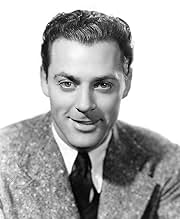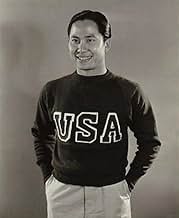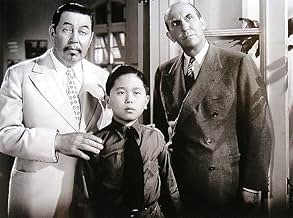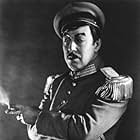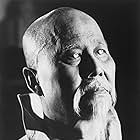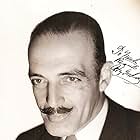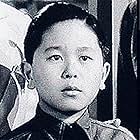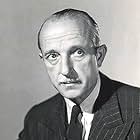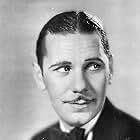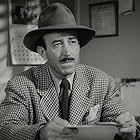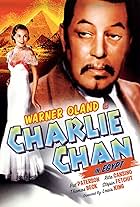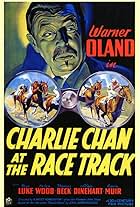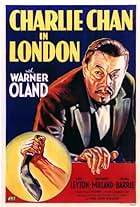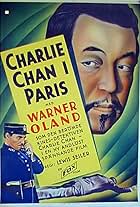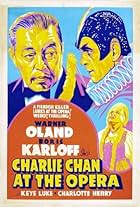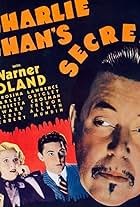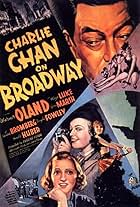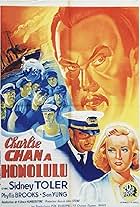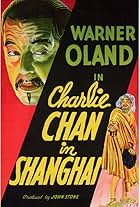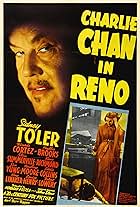IMDb RATING
7.0/10
1.9K
YOUR RATING
When a strategically important new aerial guidance system is stolen, Charlie traces it to the Berlin Olympics, where he has to battle spies and enemy agents to retrieve it.When a strategically important new aerial guidance system is stolen, Charlie traces it to the Berlin Olympics, where he has to battle spies and enemy agents to retrieve it.When a strategically important new aerial guidance system is stolen, Charlie traces it to the Berlin Olympics, where he has to battle spies and enemy agents to retrieve it.
Frederik Vogeding
- Captain Strasser
- (as Fredrik Vogeding)
William Begg
- Minor Role
- (uncredited)
Brooks Benedict
- Zaraka Henchman
- (uncredited)
Stanley Blystone
- New York Policeman
- (uncredited)
Walter Bonn
- Polizei Officer
- (uncredited)
Don Brodie
- Radio Announcer
- (uncredited)
Storyline
Did you know
- TriviaWhile several views of swastika flags were blotted out, other instances of Nazism were missed, e.g. as the German torch bearer turns left into the grand stadium avenue, in the lower left corner of screen can be seen four militarily-clad males giving the Nazi salute; plus as the same torch bearer descends the stadium steps all the youths lining the way are giving the Nazi salute, even with four outstretched arms in very front of the camera.
- GoofsThe radio direction finder used by the German Police is clearly marked as made by an American Company and sports a compass rose marked in English ('E' for East and so on, instead 'O' for Osten). Even if the German police would operate imported equipment, the markings would be in German. And it is unlikely that the Nazi regime would allow import of anything the German industry was able to produce, not to mention that German radio equipment of the time was among the best in the world.
- Quotes
Charlie Chan Jr: Gee, Pop, they're having as hard a time finding that plane as we are catching fish.
Charlie Chan: Fish in sea like flea on dog - always present but difficult to find.
- ConnectionsEdited into Who Dunit Theater: Charlie Chan at the Olympics (2015)
Featured review
Some unnamed source at IMDb alleges that CHARLIE CHAN AT THE OLYMPICS, a film capitalizing on the then recent 1936 Berlin Olympics (taking place in Germany under Chancellor Hitler) and released on May 21, 1937, in the U.S and in the early fall of that year in Europe, was "pulled from circulation shortly after its release because it takes place in Nazi Germany." Could someone please define "shortly after its release"? The film, while sympathetically portraying the civilian police force in Berlin (interestingly played for irony and possibly surprise or subtext by frequent film villain Frederik Vogeding), pointedly incorporated actual newsreel footage of Jessie Owens' Olympic triumph which was so upsetting to the Herr Hitler. The film plot had considerable hurdles to surmount in avoiding the identification of the foreign power trying to steal the "McGuffin" military device. Most U.S. or British films of the period would have been more blatant in assuming the national guilty party, but Germany was still a major market for U.S. motion pictures (even if the Chan character himself must have been an anathema to Nazi Party leadership).
Even with the unsettling Anschlus in Austria and the Munich Crisis over the dismembering of Czechoslovakia; with the invasion of Poland and the formal start of European hostilities in World War II still a little more than a year away (U.S. entry into the conflict more than four years away!), America and much of the rest of the world was doing its best to ignore distressing realities within the Reich. While CHARLIE CHAN AT THE OLYMPICS had to do a fine dance to play to that desire to turn a blind eye, it largely succeeded. It is difficult to believe that 20th Century Fox would withdraw an entry in the wildly popular Chan series in anything which could be realistically considered "soon" (anything less than six months). A specific DATE of the withdrawal would be appreciated.
While the film over all may be one of the lesser Chan efforts, it has moments (the initial set-up in the U.S., the travelogue race to Berlin, the scenes in the Olympic Stadium and the final confrontation with the killers) which are as good as any in the canon. To be dismissed as "pulled from circulation shortly after its release" if it is demonstrably not true would be unfortunate.
Even with the unsettling Anschlus in Austria and the Munich Crisis over the dismembering of Czechoslovakia; with the invasion of Poland and the formal start of European hostilities in World War II still a little more than a year away (U.S. entry into the conflict more than four years away!), America and much of the rest of the world was doing its best to ignore distressing realities within the Reich. While CHARLIE CHAN AT THE OLYMPICS had to do a fine dance to play to that desire to turn a blind eye, it largely succeeded. It is difficult to believe that 20th Century Fox would withdraw an entry in the wildly popular Chan series in anything which could be realistically considered "soon" (anything less than six months). A specific DATE of the withdrawal would be appreciated.
While the film over all may be one of the lesser Chan efforts, it has moments (the initial set-up in the U.S., the travelogue race to Berlin, the scenes in the Olympic Stadium and the final confrontation with the killers) which are as good as any in the canon. To be dismissed as "pulled from circulation shortly after its release" if it is demonstrably not true would be unfortunate.
- eschetic-1
- Mar 20, 2008
- Permalink
- How long is Charlie Chan at the Olympics?Powered by Alexa
Details
- Release date
- Country of origin
- Language
- Also known as
- Charlie Chan bei den Olympischen Spielen
- Filming locations
- Production company
- See more company credits at IMDbPro
- Runtime1 hour 11 minutes
- Color
- Aspect ratio
- 1.37 : 1
Contribute to this page
Suggest an edit or add missing content

Top Gap
By what name was Charlie Chan at the Olympics (1937) officially released in India in English?
Answer

